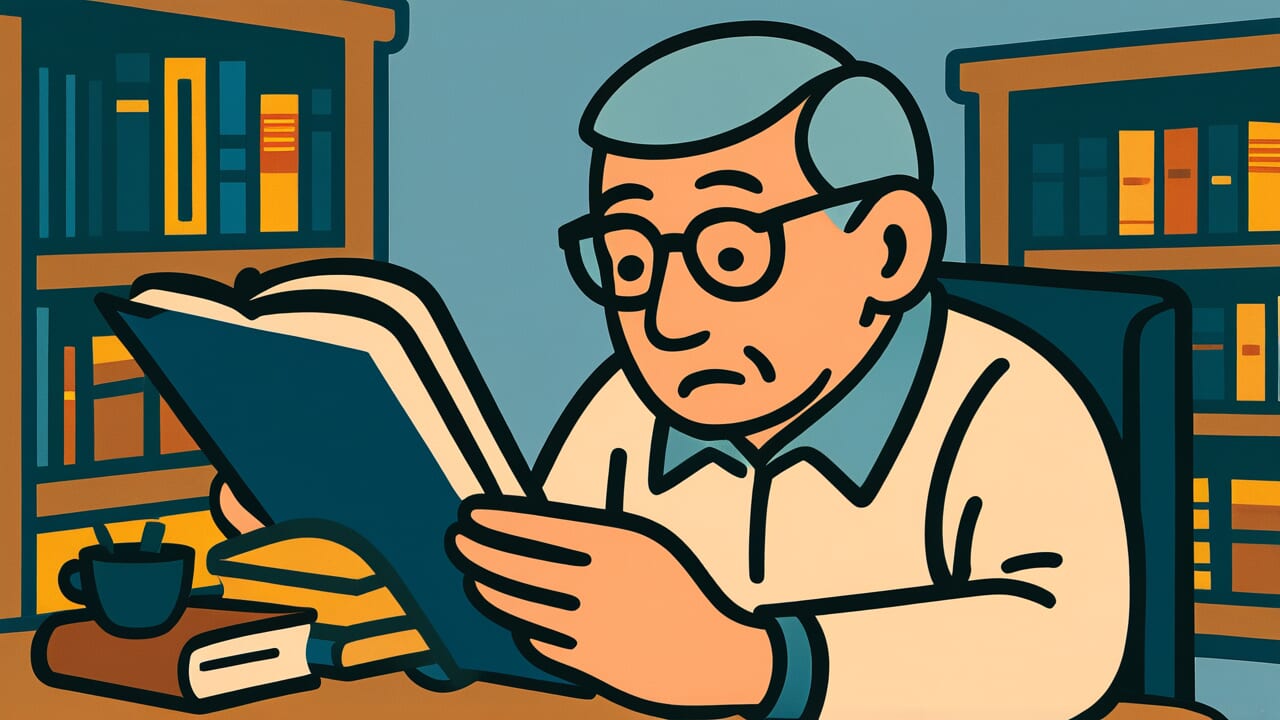How to Read “Learning in old age”
Oi no gakumon
Meaning of “Learning in old age”
“Learning in old age” means that when you start studying something after getting old, it’s hard to master it.
Your memory weakens compared to when you were young. Your ability to absorb new information also declines. This makes learning less efficient.
People often use this proverb for someone who started learning too late. It carries a sense of regret, like “if only you had started earlier.”
It’s also used to encourage young people, telling them “learn while you can.” The proverb doesn’t say learning in old age is completely meaningless.
But it does emphasize how important it is to learn when you’re young. Even today, people quote it when age feels like a barrier to getting certifications or learning new skills.
Origin and Etymology
There’s no clear written record of where “Learning in old age” came from. But people believe it was already widely used during the Edo period.
This proverb simply expresses a fact people knew from experience. Memory and learning ability decline as you age.
During the Edo period, temple schools were popular. Children mainly learned reading, writing, and arithmetic there. Adults rarely started learning, especially elderly people.
When older people did try to study, their struggles caught people’s attention.
The word “old age” doesn’t just mean getting older. It also implies declining physical strength and mental energy.
Learning takes a long time to build up. If you start young, you have plenty of time. But if you start when you’re old, you face two problems.
You have limited time left. And your memory has weakened.
This proverb came from our ancestors’ observations. They noticed there’s a right time for learning.
A flexible young mind and plenty of time are the best conditions for mastering knowledge. This short phrase captures that teaching perfectly.
Usage Examples
- I started studying English after retirement, but it’s learning in old age—I can’t memorize vocabulary easily
- My son won’t study even though he’s facing college entrance exams, so I told him to do it now before it becomes learning in old age
Universal Wisdom
“Learning in old age” contains one of the harshest truths for humans: time cannot be reversed.
When we’re young, we all feel like we have unlimited time. We tend to put off things we should learn. But time flows mercilessly.
By the time we notice, years we can never get back have passed.
This proverb has been passed down for so long because it’s not just about learning efficiency. It touches the very essence of life itself.
The human brain is most flexible when young. It’s filled with power to absorb new knowledge and skills. This proverb warns against wasting this precious period.
If we think deeper, it shows a universal concept: “the window of opportunity.” There truly is an optimal time to start something in life.
If you miss that time, you’ll need many times more effort to achieve the same thing. Or achieving it might become impossible altogether. Our ancestors saw through this harsh reality.
That’s why this proverb isn’t just words of giving up. It’s an earnest wish for the younger generation.
It’s a heartfelt message from those with experience. They want you to know the value of this very moment and learn while you can.
When AI Hears This
Synapses that connect brain neurons reorganize more flexibly when you’re young. This is called neuroplasticity.
It peaks in your twenties and gradually declines. So yes, you do memorize new things more slowly as you age. This matches the general image.
But brain science research has found something interesting. In elderly brains, the connections between neural networks formed over many years become extremely strong.
For example, young people memorize 100 English words faster. But elderly people excel at understanding politics, economics, and history all connected together.
Their power to memorize scattered knowledge drops. But their power to connect dots and find meaning actually increases.
From an information processing perspective, this is a tradeoff between input speed and integration processing ability.
Young brains are like high-speed input computers. Elderly brains are like integrated systems that can cross-search multiple databases.
So learning in old age has poor efficiency for memorizing new words. But it has an advantage in connecting complex concepts with existing knowledge to gain deep insights.
Learning in old age isn’t useless. Actually, it’s a period when intellectual production impossible for young people becomes possible.
The quality of learning fundamentally changes. But the value doesn’t disappear.
Lessons for Today
This proverb teaches us modern people the preciousness of “now.” If you want to learn something, today is the youngest day to start.
If you postpone it until tomorrow, learning becomes that much harder.
Modern society especially demands constant new knowledge and skills because technology advances so fast.
Building a learning habit while young and developing basic academic ability and thinking skills gives you power to survive in this rapidly changing era.
For students, please treasure the learning opportunities right in front of you now.
On the other hand, you don’t need to take this proverb as words of giving up, saying “it’s too late.”
True, it might take longer than when you were young. But it’s never too late to learn.
What matters is knowing this proverb’s lesson and still having courage to move forward. Learning after getting older has strengths young people don’t have: life experience.
The point is balance. Learn when you can learn. When you want to learn, don’t use age as an excuse. Hold both of these attitudes together.



Comments